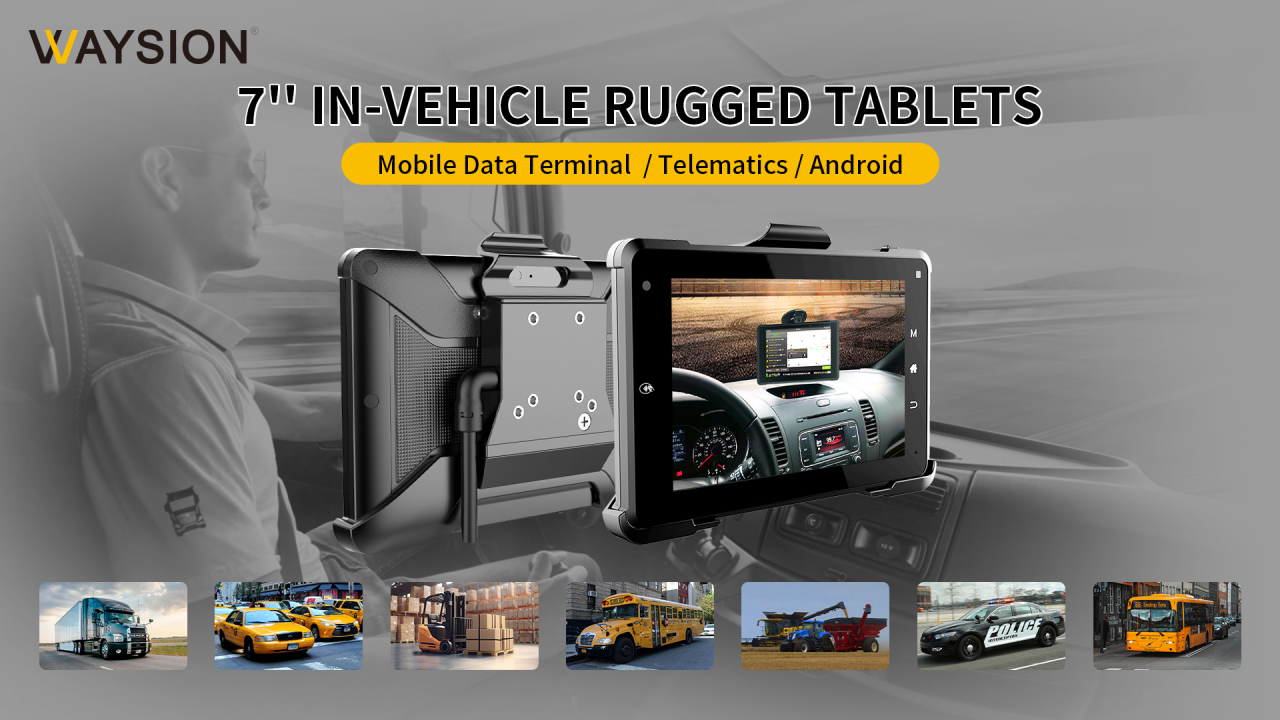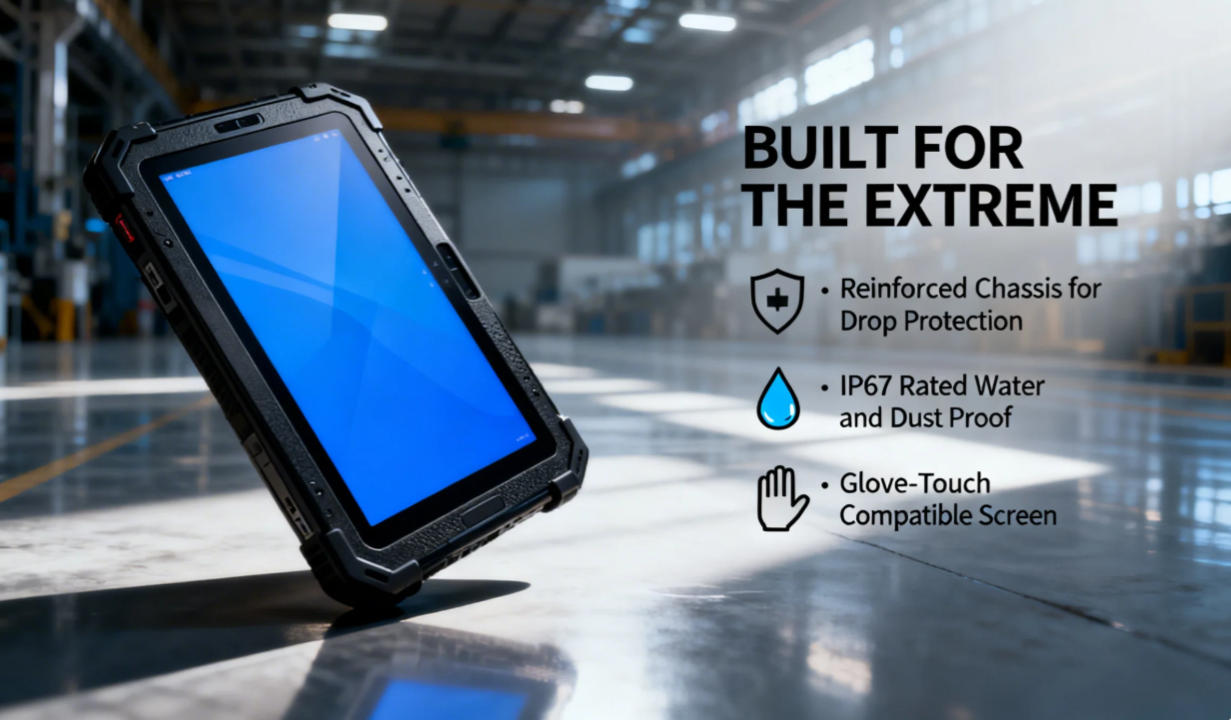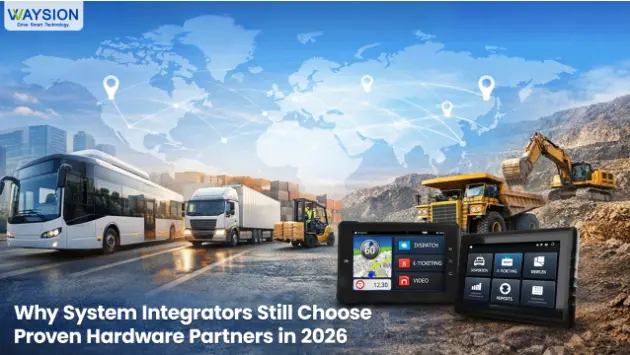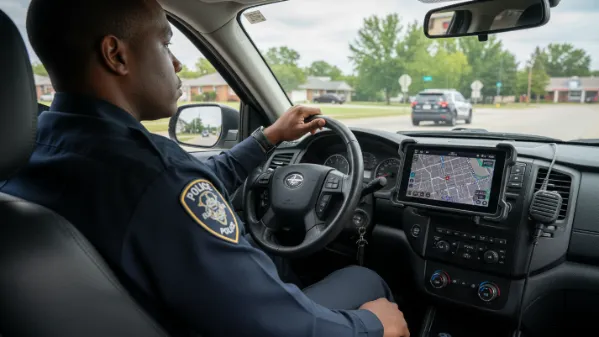In today’s fast-paced world, the need for mobile computing solutions has never been greater. In-vehicle computers have emerged as a crucial technology, transforming how businesses operate on the move. From logistics and public safety to field services and public transportation, these rugged devices are revolutionizing mobile workforces. This comprehensive guide explores the world of in-vehicle computers, their applications, and how they’re shaping the future of mobile computing.
- What Are In-Vehicle Computers?
- Types of In-Vehicle Computers
- Key Features and Specifications
- Benefits Across Industries
- Installation and Integration
- Leading Brands and Products
- Challenges and Considerations
- Future Trends in In-Vehicle Computing
- Case Studies and Real-World Applications
- Maintenance and Support
- Frequently Asked Questions
- Summary

What Are In-Vehicle Computers?
In-vehicle computers, also known as vehicle-mounted computers or mobile data terminals, are rugged computing devices designed specifically for use in vehicles. These robust machines combine the power of modern computing with the durability required to withstand the harsh conditions of mobile environments.
Types of In-Vehicle Computers
There are several types of in-vehicle computing solutions:
1. Fixed-Mount Computers: Permanently installed devices designed for long-term use in vehicles.
2. Removable Tablets: Versatile devices that can be used both in and out of the vehicle.
3. Laptops with Vehicle Docks: Traditional laptops with specialized docking stations for in-vehicle use.
4. Purpose-Built Terminals: Devices designed for specific applications like police or emergency services.
Key Features and Specifications
When selecting in-vehicle computers, consider the following features:
– Rugged Design: Look for devices with high IP (Ingress Protection) ratings and MIL-STD-810G certification for durability.
– Wide Operating Temperature Range: Ability to function in extreme heat and cold.
– Vibration and Shock Resistance: To withstand the rigors of vehicle use.
– Sunlight Readable Displays: Screens that remain visible in bright outdoor conditions.
– Multiple Connectivity Options: Wi-Fi, Bluetooth, 4G/5G, and GPS capabilities.
– Flexible Mounting Solutions: To fit various vehicle types and configurations.
– Power Management: Ignition sensing and wide-range power input to protect vehicle batteries.
Benefits Across Industries
In-vehicle computers offer numerous advantages across various sectors:
Logistics and Transportation
– Real-time route optimization and fleet management
– Electronic logging of driver hours and vehicle performance
– Improved customer service through accurate delivery tracking
Public Safety
– Rapid access to critical information for law enforcement
– Enhanced situational awareness for emergency responders
– Efficient dispatch and resource allocation
Field Services
– On-site access to work orders and customer information
– Real-time inventory management and parts ordering
– Improved productivity through mobile workforce management
Public Transportation
– Real-time passenger information systems
– Fleet tracking and schedule adherence monitoring
– Ticketing and fare collection integration
Installation and Integration
Installing in-vehicle computers typically involves:
1. Choosing appropriate mounting hardware
2. Ensuring proper power supply connection
3. Integrating with existing fleet management or dispatch systems
4. Setting up wireless infrastructure for seamless connectivity
5. Training operators on proper use and maintenance
Leading Brands and Products
Several manufacturers offer high-quality in-vehicle computers:
1. Durabook: The [R11 Rugged Tablet]offers versatility and durability for various applications.
2. Getac: The [F110 Rugged Tablet] combines power with a compact design.
3. Panasonic: The [TOUGHBOOK 33]is a versatile 2-in-1 device for in-vehicle use.
4. Zebra Technologies: The [ET80/ET85 Rugged Tablets] offer advanced features for enterprise mobility.
5. Waysion:The[Q777 rugged tablet] for fleet management, taxi dispatch, intelligent public transportation.
Challenges and Considerations
While in-vehicle computers offer numerous benefits, there are some challenges to consider:
1. Initial Cost: High-quality rugged devices can be a significant investment.
2. Integration Complexity: Ensuring seamless integration with existing systems can be challenging.
3. User Training: Operators need proper training to maximize the benefits of these devices.
4. Security Concerns: Protecting sensitive data in mobile environments requires robust cybersecurity measures.
5. Regulatory Compliance: Ensuring devices meet industry-specific regulations and standards.
Future Trends in In-Vehicle Computing
The future of in-vehicle computers looks promising with emerging trends such as:
1. AI and Machine Learning: Enhanced predictive maintenance and intelligent decision support.
2. 5G Connectivity: Faster, more reliable data transmission for real-time applications.
3. Edge Computing: Improved processing capabilities for data-intensive tasks at the vehicle level.
4. Augmented Reality (AR): Enhanced navigation and operational support through AR interfaces.
5. Advanced Power Management: Longer-lasting battery solutions and improved energy efficiency.
Case Studies and Real-World Applications
Logistics Company Improves Efficiency
A major logistics company implemented in-vehicle computers across its fleet, resulting in a 15% reduction in fuel costs and a 20% improvement in on-time deliveries. The real-time route optimization and driver performance monitoring capabilities significantly enhanced overall operational efficiency.
Emergency Services Enhance Response Times
A metropolitan fire department equipped its vehicles with rugged in-vehicle computers, leading to a 30% reduction in response times. The improved access to building plans, hydrant locations, and real-time traffic data allowed for faster and more effective emergency responses.
Field Service Company Boosts Productivity
A telecommunications service provider deployed in-vehicle computers to its field technicians, resulting in a 25% increase in daily job completions. The ability to access customer information, equipment diagnostics, and inventory data in real-time significantly reduced downtime and improved customer satisfaction.
Maintenance and Support
To ensure longevity and optimal performance of in-vehicle computers:
1. Implement regular cleaning and inspection routines
2. Train operators on proper handling and care
3. Keep software and firmware up to date
4. Have a plan for quick repairs or replacements to minimize downtime
5. Consider extended warranty options for mission-critical applications
Frequently Asked Questions
1. Q: How do in-vehicle computers differ from consumer tablets?
A: In-vehicle computers are built to withstand harsh environments, extreme temperatures, and constant vibrations. They also offer specialized features like ignition sensing and wide-range power input.
2. Q: Can in-vehicle computers work offline?
A: Many models offer offline functionality with data synchronization once connectivity is restored.
3. Q: What is the typical lifespan of an in-vehicle computer?
A: With proper care, these devices can last 5-7 years or more in mobile environments.
4. Q: How do in-vehicle computers integrate with existing fleet management systems?
A: Most devices support standard interfaces and protocols, allowing for seamless integration with popular fleet management and telematics solutions.
5. Q: Are there specific regulations regarding the use of in-vehicle computers?
A: Regulations vary by industry and region. It’s essential to consult with local authorities and industry standards to ensure compliance.
Summary
In-vehicle computers have become indispensable tools across various industries, revolutionizing mobile operations and enhancing productivity. By providing real-time data access, improving communication, and enabling efficient resource management, these rugged devices are driving innovation in logistics, public safety, field services, and beyond. As technology continues to evolve, in-vehicle computers will play an increasingly crucial role in optimizing mobile workflows and driving business success in competitive markets. When considering the implementation of in-vehicle computers, it’s essential to carefully evaluate your specific needs, choose the right hardware and software solutions, and provide proper training to maximize the benefits of this transformative technology.
Latest Content
- The 5 Best Rugged Tablets for Manufacturing in 2026
- Why System Integrators Still Choose Proven Hardware Partners in 2026
- What is a Mobile Data Terminal (MDT)? Ultimate Guide for 2026
- Rugged Tablet for Logistics | Durable Mobile Solutions for Supply Chain
- Beyond the Break: Unpacking the Power of Rugged Tablets and Rugged Tablet PCs for Demanding Industries
Tags: Fixed-Mount Computers, In-Vehicle Computers, Purpose-Built Terminals, rugged in-vehicle computer, Vehicle computer, What Are In-Vehicle Computers








